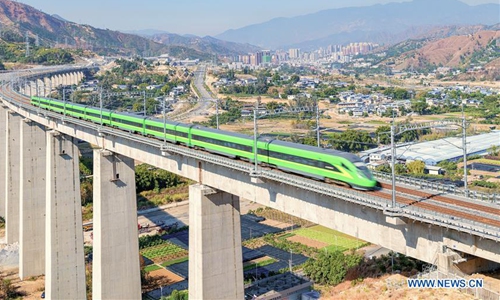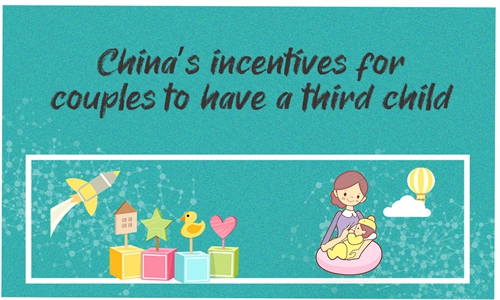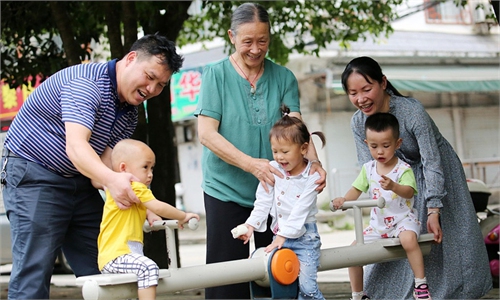
A Fuxing bullet train runs through a bridge in Panzhihua, southwest China's Sichuan Province, Jan. 9, 2020. The CR200J Fuxing (Rejuvenation) bullet trains started to run on the high-speed railway linking Panzhihua and Kunming. As the train goes into service, travel time between the two cities is slashed from about 5.5 hours to about two. Photo:Xinhua
Panzhihua city in Southwest China's Sichuan Province, with 1.23 million population, announced on Wednesday it plans to dole out money to couples giving birth to more than one child, the first-ever official incentive of its kind to spur more childbirths as part of broad-based efforts to address China's demographic decline in the longer term.
The local government in Panzhihua decided to offer a subsidy of 500 yuan ($76.87) per baby every month for families with a local hukou that have a second or third child, until the babies turn three. The city became the first in China to have announced childbirth bonus.
Third child-related stocks also stood out from the overall weakness in the Chinese stock market, with raw milk supplier Xinjiang Western Animal Husbandry Co among a handful of stocks rising by their daily limit.
The third-child sector gained 1.76 percent on Wednesday, outperforming a 0.58-percent decline in the flagship Shanghai Composite Index.
The Wednesday announcement was part of a rollout of new measures by the city to lure talent that also include free delivery services for local women in qualified hospitals.
The cash incentive came after the recent introduction of various childbirth incentives to respond to the country's shift toward a third-child policy.
Last week, the central government rolled out a set of measures, including reducing childbirth and education costs, to aim for a balanced population growth in the long run.
A crackdown on after-school private tutoring business soon followed, indicating a government effort to rein in educational costs that are considered to have weighed on the fertility rate.
China announced in May the relaxation of its two-child policy to allow couples to have up to three children.
The policy shift would help in addressing the country's low childbirths, improving demographic structure, and pushing for the balanced development of the population, Fu Linghui, spokesman for the National Bureau of Statistics, said in mid-June.
China's population grew to 1.412 billion at the end of last year, but new births shrank for a fourth straight year to merely 12 million, according to official data.
Global Times


